The Scene: I arrive at the Magnolia Hotel at 7:15. I have been staring at the clock at work all day waiting for this moment. The Magnolia Hotel‘s ballroom is a grand place for a party. Upon entering, the marvelous white quartz pillars guide me into the room which once was the lobby for the United States National Bank and my eyes are naturally drawn up to the light coming from the glass atrium far above the dance floor. It is a beautiful place, and a fitting place for Beethoven & Brews. It is my second time to this particular event, and I notice immediately that there seem to be less people in attendance. I wonder why.
Co-hosted by Fort Collins microbrewery Funkwerks, there are four beer tasting bars surrounding the performance area in the middle of the ballroom. As I scan the perimeter I notice something else–four music stands and four chairs in the performers’ area. Previously it was my understanding that Beethoven and Brews featured a trio of musicians from the Colorado Symphony. A pleasant twist, I make my way to the center of the room to examine the sheet music on the stands. “Streichquartett.” Hm. So it is. I decide it is time for a beer.
I haven’t been drinking lately, but since the ticket includes the free beer tasting I tell myself it’s okay to make an exception. I make my way to the Brett Trois bar, where I get my first taste of Funkworks’ product. I am impressed. Slightly sweet, but not too hoppy. That’s about as far as my beer palette will take me. Thankfully, there is a convenient little sign on the table sharing the ABV, tasting notes and some info on the beer–this one is made from the Belgian Brettanomyces strain of yeast which produces “funky flavors” such as citrus and bubble gum. They also use special hops that give it aromas of Papaya and Mango. I take another sip. All true–but very subtly–this is no Pyramid Apricot Ale. It is tasteful and refined. Time to check out the snacks. This time, the buffet is tucked into a waiting room area in the front of the building; last time it was in the ballroom area, which seemed to crowd things up a bit. I gather a couple lamb meatballs and a mini twice-baked potato on a bread and butter plate and make my way to the cocktail table where I will take in the performance.
The Performance: As the musicians make their way out into the crowd towards the performance area, I have an epiphany: “Streichquartett” means string quartet! John Hilton leads the quartet of musicians to their performance area–the violin player seems to have a knack for entertaining and plays the role of announcer for the event. He is accompanied by violin player Dorian Kincaid, Phillip Stevens, who plays the viola, and cellist Thomas Heinrich. Hilton greets the crowd, informs us that they will be performing “Opus 18, No. 4,” reminds us of our manners (you can talk, but be respectful), and settles into his chair.
The music begins. It is lively, with a pace that rises and falls with excitement, reminding me of an old silent movie (the scene in which the hero relentlessly pursues a villain, who, of course, has captured a damsel in distress.) Pure entertainment. I take a sip of my beer and examine Hilton. His contribution is bursting with energy; he imparts fury with each fervent stroke of his bow. I love this music. Like many others in the crowd, I do not fully understand it. But my heart does. I close my eyes and try to listen deeply. When it comes to an end, I feel a twinge of disappointment, as I know the show is now half over. Thank goodness I still have more beers to taste.
I wander to the Saison bar, where I’ve overheard that the owner of the brewery, Brad Lincoln, is serving. He jokes and laughs with folks as they come to sample his wares, but when I inquire more about the Saison, he proudly informs me that Saison is their specialty. He tells me that they recently celebrated their third anniversary and that they won a gold medal in the 2012 Great American Beer Festival. You do the math. I imbibe. It is fantastic. Perfectly balanced sweetness, it is a medium bodied, easy-drinking brew but it is also curiously complex. I check out the notes as I gulp it down–touches of passion fruit and black pepper are recognized. I think I will stay at this bar and have another. I focus on pacing myself–but it’s so good!–I finish my first, get my second, and prepare myself for the latter half of the show.
Again, Hilton leads the musicians back onstage and remains standing. He explains that this next piece, “Opus 59, No. 3,” captures the emotions the Beethoven experienced as he became deaf: the first part, before he begins to loose his hearing, is joyous and lively, but the second part was written after he lost his hearing, and it has a completely different tone. He also tells us that there is a sort of “false ending” in the piece–that we will think it’s done when it really isn’t.
It begins. As promised, the the introduction is lovely. As I listen, I imagine the many people who have enjoyed this music throughout history. I think of the grand balls they had, the rehearsed steps of their dances and the ornate attire that they wore, and though it is only in my imagination, I give thanks for being given a glimpse of what that was. Music, like other forms of art, transcends time, regardless of whether or not we comprehend it.
A break in the music marks the shift in the mood of the piece. The music that I now hear is sorrowful and lamenting, yet joyously beautiful. Tears begin to well up in the corners of my eyes. I take a deep breath and choose to focus on the musicians rather than the emotions of the piece. The four of them are facing inward, with their backs to the crowd and their sheet music stands in the center of the stage area. They look at the sheet music in front of them as if to stare it down. I can’t help but think that these musicians must personally experience the angst that Beethoven was trying to convey when he wrote the piece. Facing each other and methodically wailing on their respective instruments, the scene is reminiscent of something from a Jean-Paul Sartre play. The lament continues for a while, and levels out a bit. A crescendo seems to mark the end of the piece, the classic formula to end a song, the music comes to a halt and many people begin to clap, but then awkwardly realize their folly. A moment of comic relief is delivered as Hilton yells, “Everyone who clapped: Drink!!” The crowd explodes into laughter, the music resumes for about two more minutes and brings the evening to a jolly close. Hilton says his thanks, bows are made, and the show is ended. I’ve said it before, I will say it again; I love Beethoven and Brews.
As I gather my coat to exit the marvelous venue I wonder if Denver will ever completely catch on to this little hidden gem of local entertainment? Maybe yes, maybe no, but in the meantime, more for me–and anyone else who is willing to listen. Let’s just say it is (still) one of Denver’s best kept secrets.
Energy: A
Musicianship: A+
Sound: B
Stage Presence: A-
Set/Light Show: B
Overall: A-
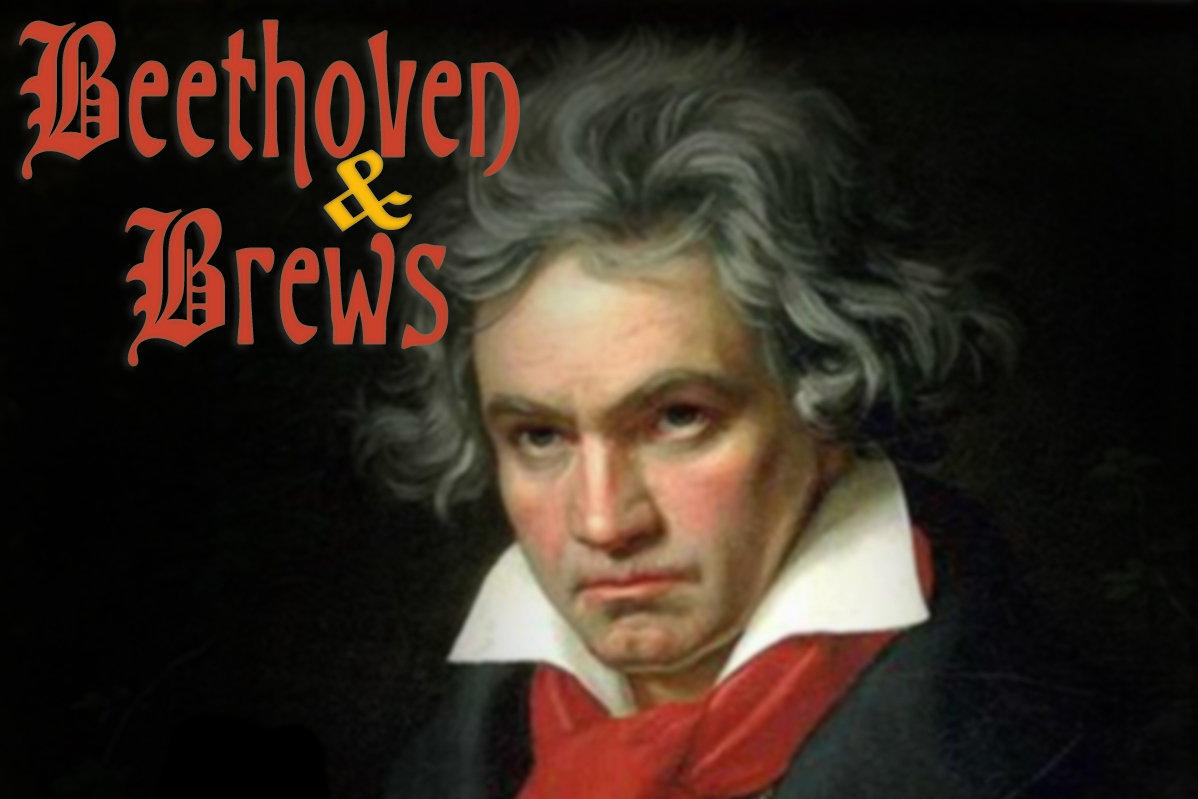
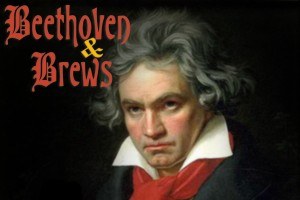
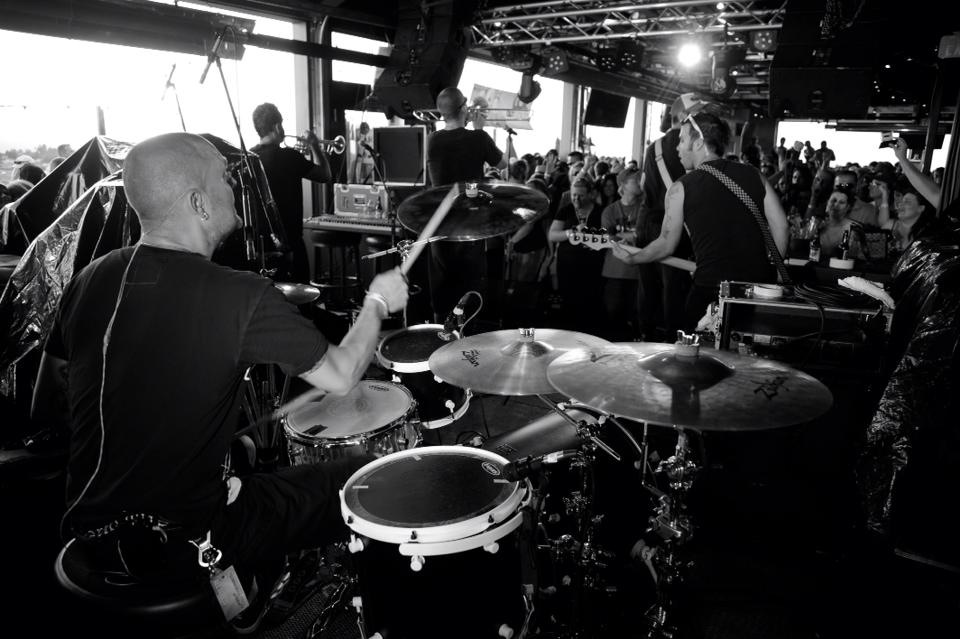
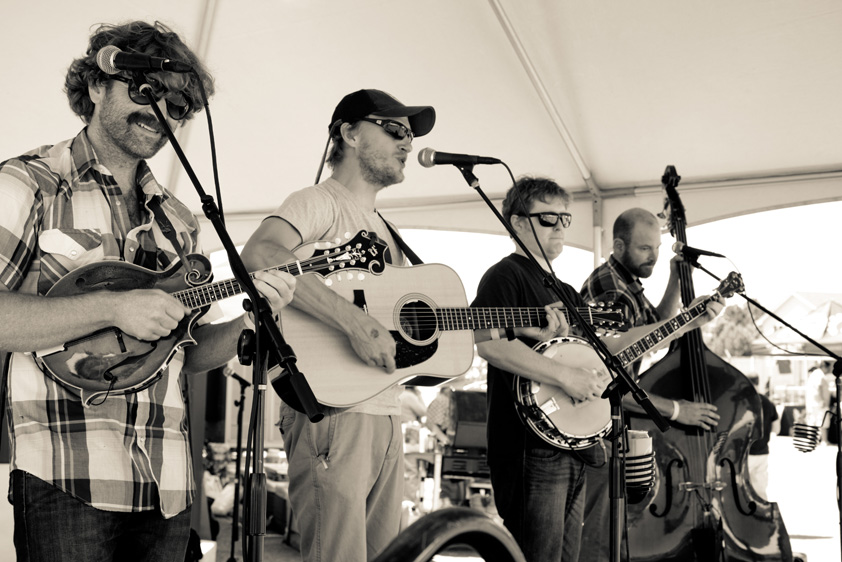
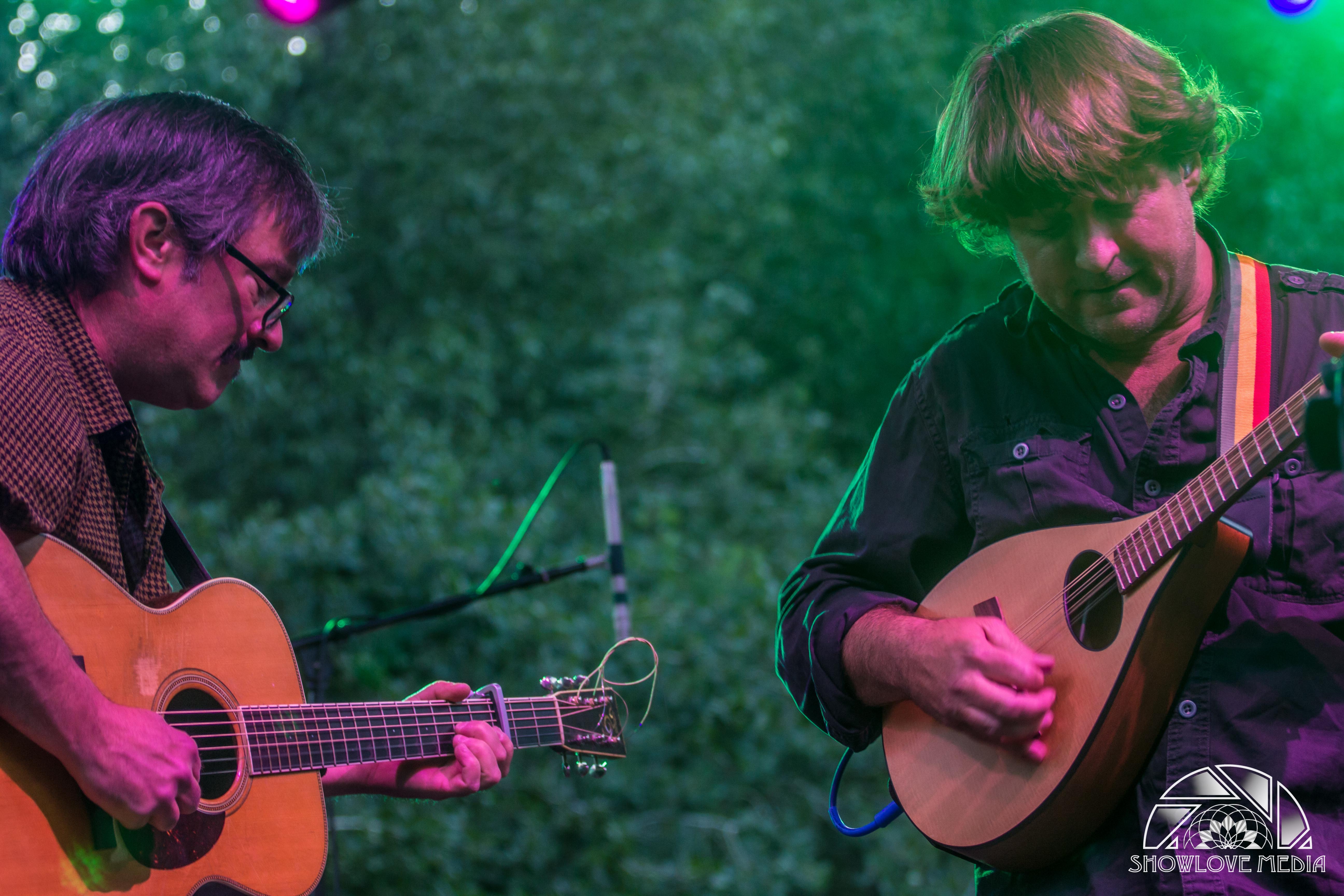
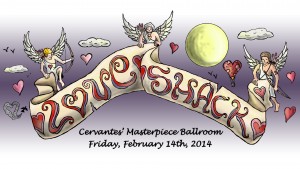
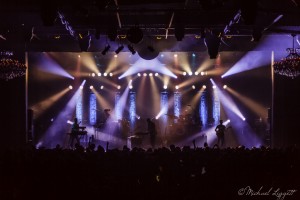
+ There are no comments
Add yours